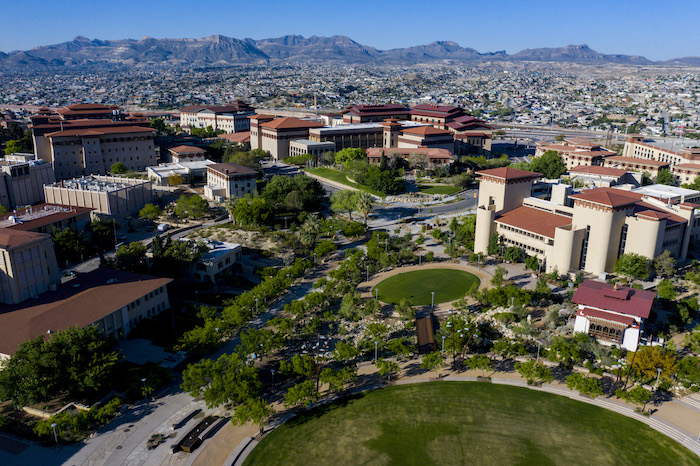UTEP Expands Research Capacity in Partnership with Pacific Northwest National Laboratory

EL PASO, TX – The University of Texas at El Paso (UTEP) and Pacific Northwest National Laboratory (PNNL) have signed a memorandum of understanding to create new opportunities for students and faculty to participate in high-impact research in areas such as data science, cybersecurity and geoscience.
The agreement is also designed to lead to job opportunities for UTEP graduates with the national lab.
“Our students and faculty will be able to collaborate with scientists and engineers at the lab in finding solutions to some of our most pressing national problems,” said UTEP President Heather Wilson.
PNNL builds on its strengths in chemistry, Earth science, biology and data science to advance scientific knowledge and address sustainable energy and national security challenges. Founded in 1965, PNNL is operated by Battelle for the Department of Energy, and is part of a network of 17 national laboratories.
With an annual budget of more than $1.2 billion, PNNL employs 5,700 scientists, engineers and other professionals.
“At PNNL, we are committed to fostering a culture where creativity and innovation thrive, and where diversity, equity and inclusion are embraced and valued. Clearly, we have many synergies to celebrate today. By bringing together our research aspirations and our passion to inspire and equip the scientists and engineers of tomorrow,” said PNNL Director Steve Ashby.
The memorandum builds on an existing partnership between the two institutions, which aims to achieve three main goals: find joint solutions to problems of significant national priority in areas of common interest and expertise, such as energy and national security concerns; develop a diverse and sustainable workforce with the talent needed to address these problems; and accelerate technology adoption by introducing new ideas, science and technology into industrial and federal markets.
As part of the partnership, UTEP faculty will have the opportunity to do research at PNNL and vice versa. PNNL researchers will also be able to teach courses at the University as adjunct faculty. Other avenues of collaboration include postdoctoral assignments, joint publications, conferences and workshops.
UTEP students, including those from groups typically underrepresented in STEM fields, will benefit from the partnership through internship programs and employment opportunities at PNNL. In addition, the agreement will also allow joint access to research funding sources not typically available to either institution separately.
